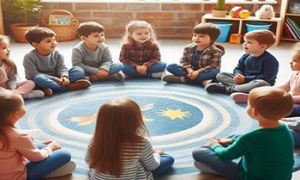With new child safety regulations having just come into effect, here’s a sector-responsive list of Quality Improvement Plan (QIP) priorities that services across Australia should consider updating immediately. These priorities align with the National Quality Standard (NQS), recent regulatory changes, and sector best practice.
Child Safety Policy Enhancements
NQS Quality Areas: QA2 (Children’s Health and Safety), QA7 (Governance and Leadership)
- Embed child safety into service philosophy and leadership practices
- Review and update risk assessments for physical and digital environments
- Ensure staff training includes trauma-informed practice and mandatory reporting obligations
Safe Use of Digital Technologies
Linked to Regulation 168 (New as of today)
- Develop or revise policies for image/video capture, device use, and surveillance
- Implement parental consent protocols for digital content
- Audit educator use of service-issued devices and children’s access to technology
Rapid Incident Reporting Protocols
Linked to Regulation 176 (Updated today)
- Update internal workflows to ensure serious incidents (e.g., abuse allegations) are reported within 24 hours
- Train staff on new timeframes and escalation procedures
- Include clear documentation templates and communication pathways
Smoke-Free and Vape-Free Environments
Linked to Regulation 82 (Expanded today)
- Update health and safety policies to explicitly ban vaping
- Conduct environmental audits to ensure compliance
- Communicate changes to families and staff
Staff Wellbeing and Psychological Safety
NQS Quality Areas: QA4 (Staffing Arrangements), QA7
- Embed debriefing protocols after violent or distressing incidents
- Include well-being goals in staff development plans
- Provide access to EAP, peer support, and trauma-informed resources
Family Engagement in Safety Planning
NQS Quality Areas: QA6 (Collaborative Partnerships with Families)
- Co-design behaviour support plans with families
- Use emotionally intelligent communication templates for incidents
- Offer parent workshops on regulation, trauma, and digital safety
Continuous Improvement Culture
NQS Quality Areas: QA1–QA7
- Use ACECQA’s Self-Assessment Tool to identify gaps
- Align QIP goals with new regulatory expectations
- Celebrate strengths while prioritizing areas of risk and reform
SMART Goals For These Priorities
Here’s a set of SMART goals tailored for early childhood services updating their Quality Improvement Plans (QIP) in response to the new child safety regulations effective today, 1 September 2025.
Each goal is
- Specific
- Measurable
- Achievable
- Relevant
- Time-bound
These goals align with NQS Quality Areas 2, 6, and 7, and reflect sector priorities around safety, digital policy, and staff well-being.
1. Strengthen Child Safety Policy Implementation
Goal:
By 30 September 2025, review and update the service’s child safety policy to reflect new NQF regulations, including digital technology use, incident reporting timeframes, and vaping bans.
- Conduct a team policy review session
- Update documentation and share with families
- Submit revised policy to the approved provider for endorsement
2. Embed Safe Digital Practices
Goal:
By 15 October 2025, implement a new digital technology policy that includes parental consent protocols, educator device use guidelines, and image/video storage procedures.
- Draft policy using ACECQA’s model templates
- Host a staff training session on safe digital practices
- Distribute updated policy to families with opt-in forms
3. Improve Incident Reporting Timeliness
Goal:
By 1 November 2025, ensure 100% of serious incidents are reported to the regulatory authority within 24 hours, in line with updated Regulation 176.
- Create a visual incident flowchart for staff
- Train all educators on new reporting timeframes
- Audit incident reports monthly for compliance
4. Support Educator Psychological Safety
Goal:
By 30 November 2025, establish a formal debriefing protocol for staff following violent or distressing incidents involving children.
- Develop a trauma-informed debrief template
- Train room leaders in facilitation
- Include well-being check-ins in team meetings
5. Co-Design Behaviour Support Plans with Families
Goal:
By 15 December 2025, ensure that 100% of children with repeated challenging behaviours have a co-developed behaviour support plan involving family input.
- Schedule collaborative planning meetings
- Use emotionally intelligent communication templates
- Review plans quarterly with families and allied health professionals
Further Reading
Understanding The Quality Improvement Plan
Process Of Self-Assessment In An Early Childhood Setting
Self-Assessment In Early Childhood Services
Steps in the Assessment and Rating Process







 As an Educator in Australia, your pay rate falls under the Children’s Services Award 2010. This award states the minimum amount that an employer can
As an Educator in Australia, your pay rate falls under the Children’s Services Award 2010. This award states the minimum amount that an employer can When working as a qualified Early Childhood Teacher (with a university degree) within a service, your rate of pay will come from the Educational Services
When working as a qualified Early Childhood Teacher (with a university degree) within a service, your rate of pay will come from the Educational Services When working as a Diploma Qualified Educator your pay rate is from the Children's Services Award 2010. This Award states your minimum rate of pay
When working as a Diploma Qualified Educator your pay rate is from the Children's Services Award 2010. This Award states your minimum rate of pay When working as a Cert 3 Qualified Educator, your pay rate is from the Children's Services Award 2010. This Award states your minimum rate of
When working as a Cert 3 Qualified Educator, your pay rate is from the Children's Services Award 2010. This Award states your minimum rate of Educational Leaders play a crucial role in their early childhood service by ensuring that the educational program aligns with best practices and supports the holistic
Educational Leaders play a crucial role in their early childhood service by ensuring that the educational program aligns with best practices and supports the holistic In early childhood education and care, ratios are more than a technicality—they are a frontline safeguard. Every child deserves responsive supervision, emotional connection, and developmental
In early childhood education and care, ratios are more than a technicality—they are a frontline safeguard. Every child deserves responsive supervision, emotional connection, and developmental Here’s a comprehensive Mobile Phone and Smart Watch Policy tailored for early childhood education and care (ECEC) services in Australia, aligned with the latest 2025
Here’s a comprehensive Mobile Phone and Smart Watch Policy tailored for early childhood education and care (ECEC) services in Australia, aligned with the latest 2025 With the new national child safety reforms kicking in on 1 September 2025, early childhood services like yours have a real opportunity to lead the
With the new national child safety reforms kicking in on 1 September 2025, early childhood services like yours have a real opportunity to lead the The Sea of Fish Challenge is a national initiative that invites children, educators, families, and communities to create and display fish artworks as a symbol
The Sea of Fish Challenge is a national initiative that invites children, educators, families, and communities to create and display fish artworks as a symbol Across the early childhood education and care sector, educators are sounding the alarm: current staffing ratios are insufficient to deliver safe, meaningful, and developmentally appropriate
Across the early childhood education and care sector, educators are sounding the alarm: current staffing ratios are insufficient to deliver safe, meaningful, and developmentally appropriate


